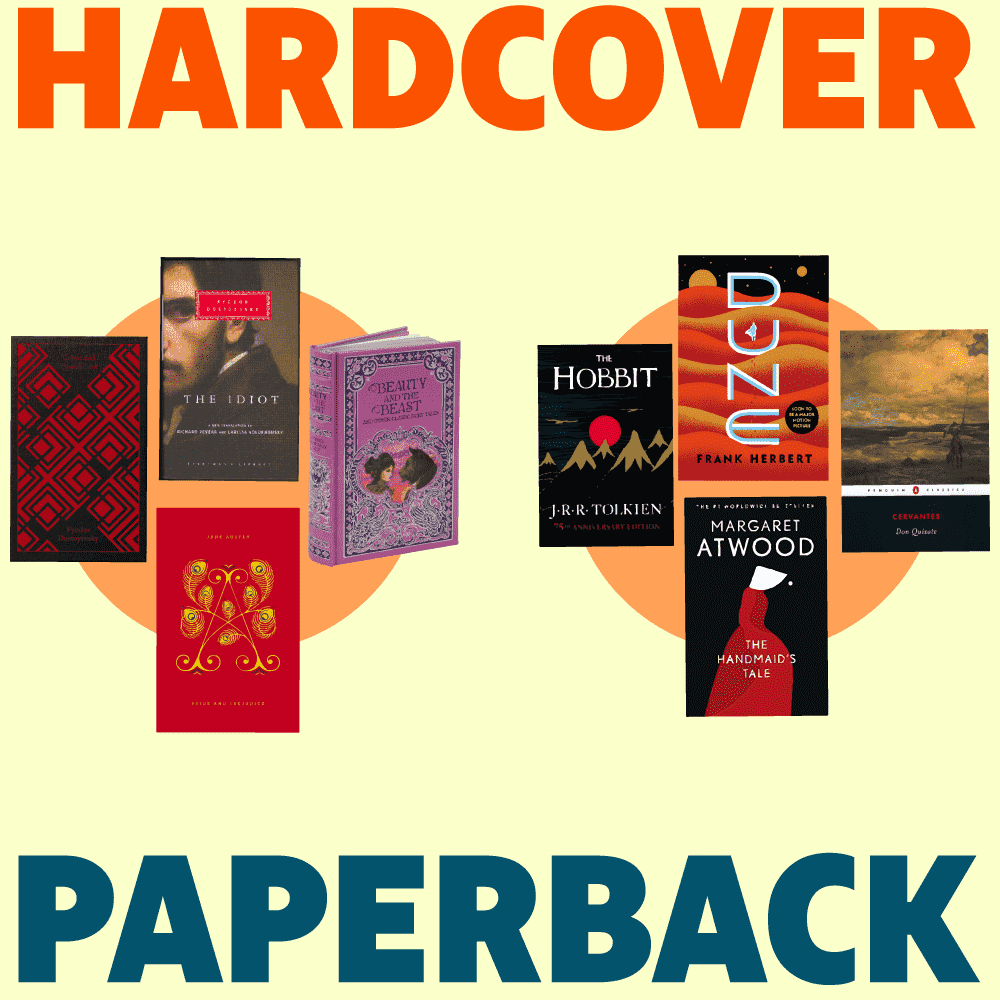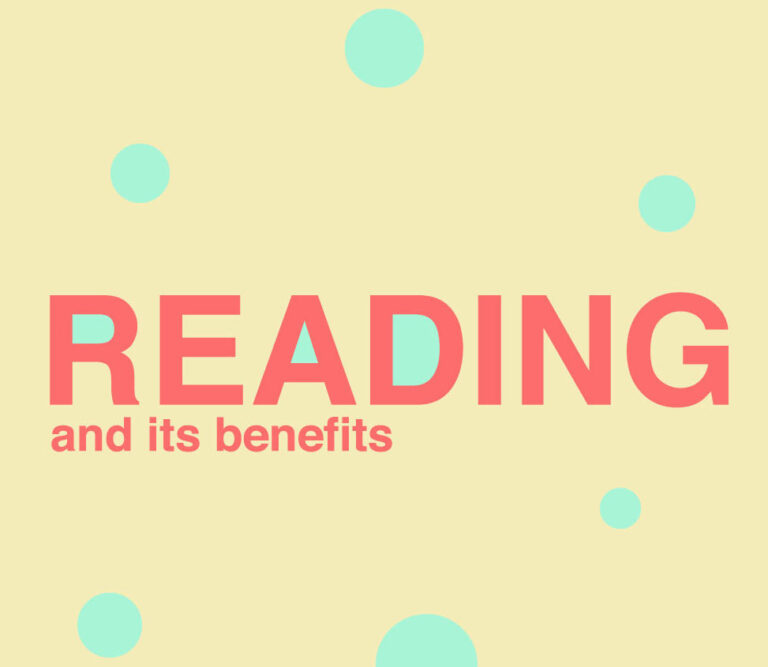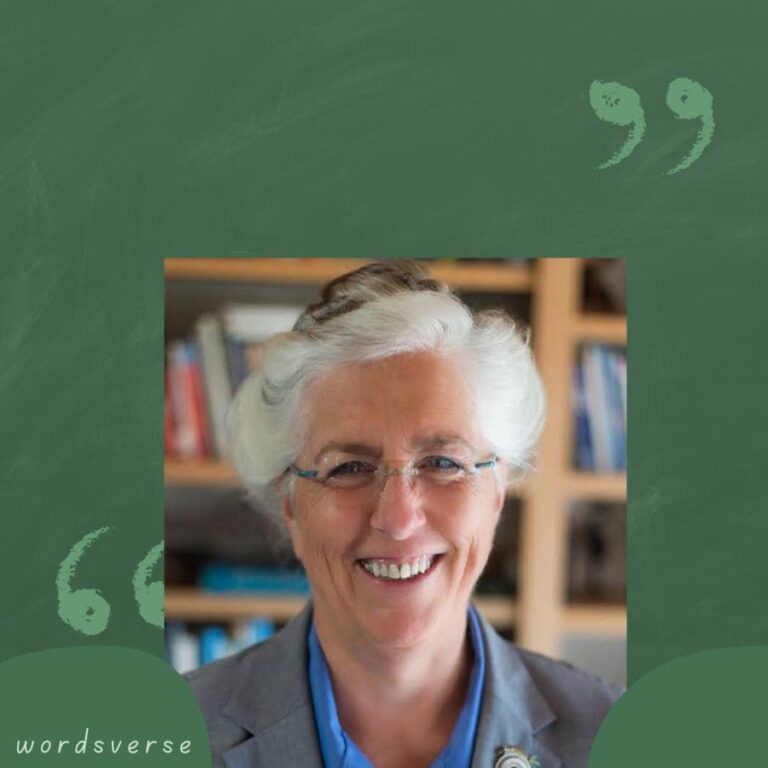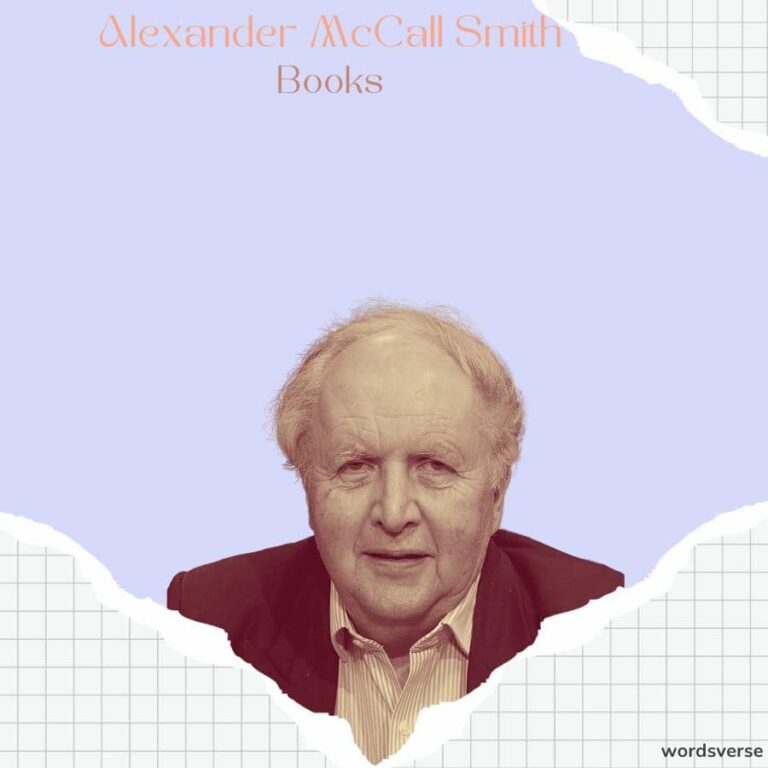Perhaps the debate between choosing hardcover vs paperback is the most dichotomizing one amongst readers. Some prefer one while some want to have the other. But what makes hardcover books different from paperback books and is there an advantage in choosing one? We find out.
We will also try to find out which type of book is better for what purpose. The difference between hardcover and hardback, between mass-market paperback and trade paperback. Why hardcovers are so expensive and why publishers choose to publish certain genres to be published in hardcover and some in paperback format. And finally, we look into the possibility of Kindle being better than both versions.
Types of books
Books come in various materials and formats. They vary in the quality of paper, print quality, dimension, and finally, the binding and cover. Based on binding and cover, there are two major types; hardbound/hardcover and paperback.
The difference comes from the material used in making the book. Paperbacks have a book cover made with flexible, thick paper. Hardcovers are made of cardboard that is thick and sturdy. An additional layer of paper/leather/cloth is added. A ribbon bookmark is usual with the hardbound edition of the book.
So what makes hardbound better? And what makes paperbacks better? Let’s look at the advantages of paperbacks and hardbacks and then the disadvantages of the two.
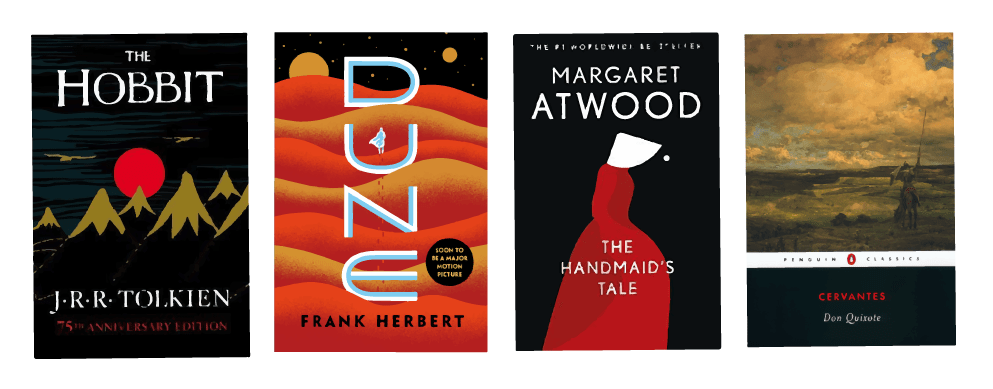
Advantages of paperback books
Comfort
Paperback books are light, flexible, easier to carry, and much easier to read than hardcover on any given day, any given situation. There is not a single hardcover book that would be more comfortable to read than any paperback book.
You can read paperback books with just one hand] (albeit not for long). Since these books are flexible, you can bend the book however you like to find that comfortable configuration.
Portability
I don’t travel a lot, but when I do, I read a lot. And just the thought of bringing a hardbound book, even a smaller one is a nightmare. This is why paperbacks are great for travel. Just throw them in your backpack and take them out anywhere you want to read. Since they are comfortable to hold, you can read them anywhere, standing in line waiting for coffee or in Lyft or Uber.
This doesn’t just apply to travel but also your home. I keep the book I am reading with me all the time, whether at my work desk or on the couch or even in the bed. This transfer of books from one room to another is possible only with a paperback. As to why it cannot be done with a hardback will be mentioned later. So the portability point goes to paperback.
Ruggedness
I know some of the readers may have raised their eyebrows and wondered why I am putting the ruggedness of paperback as an advantage. Well, hear me out.
Paperbacks are flexible and this makes them good shock absorbers. Imagine a paperback falling on its edge, opposite of its spine. It just bends and perhaps gets a crease. The same fall would damage the edges and corners of a hardback.
Paperbacks are also bent, folded, opened completely, whatever, and remain the way they were before. The spine suffers for sure, but the paper and cover remain fine. There’s another reason why paperbacks are capable of suffering more. And that’s the next point.
Cost
The best thing about paperbacks is the cost. They are cheap, especially mass-market paperbacks. And if you are a voracious reader like me who had five books on unread and still orders two more because it was a great deal, buying cheap is of great advantage.
This also ties with the ruggedness. Since these books are cheaper, you can use them without too much worrying. If a book costs $10, you won’t worry too much about maintaining the spine. But if it were a $50 leatherbound, special edition book, you wouldn’t dare touch it without wearing gloves.

Disadvantages of paperback
Paperbacks are not flawless they are far from it. There are some disadvantages of getting a paperback, albeit fewer than the advantages. Here they are;
Quality
The reason paperbacks are cheap is because they are very low in quality. I am not saying that paperbacks are of low quality. No. There are some really great paperback editions like the Vintage Classics or Harper Collins editions. But when compared to hardback editions, they are not even close to the refinement hardbacks offer.
The cover is made of paper that is susceptible to tearing or creases. While very cheap mass-market paperbacks have a very poor quality of paper, most of the paperbacks come with thick, creamy paper. But many of the paperback books suffer from yellowing of the pages.
Content
Here’s the big issue with paperback books; They’re not publishers’ first choice when a big title releases. So the next A Song of Ice and Fire (Winds of Winter) releases, don’t expect it to come in the paperback edition or at a cheap price (I’ll pay anything just to know if George R.R Martin is working on it or not). This is because hardback editions are more profitable.
So when an anticipated title releases, publishers want to make as much profit as possible from hardbound books. Also, publishers print new authors’ work in paperback when they think that their work is subpar.
Binding
Paperbacks not only have a flimsier covering but their binding is also poorly done. These books are produced in large numbers and to maximize production and lower cost, glue is used with a sheet of paper to bind the pages together. So paperback books are prone to tearing from the bind.
This was all about paperbacks, their advantages, and disadvantages. Do let me know if I missed something. Now let’s look at hardbacks and where they outperform and underperform paperback books. Since this article has become longer than I expected, I’ll keep the next section short and compact.

What makes hardcover books better?
Hardcovers are considered as the premium versions of print books. They are well-built, are of superior quality, and cost a lot more than paperbacks. Here’s why hardcovers are great.
Quality
Hardcover books are way better in terms of quality. The bind is stronger with papers held together with a combination of adhesive and stitching. The spine of the book is super durable and the paper is crispy, bright white with good quality printing.
Hardcovers also don’t age. There’s no yellowing of papers, they are less susceptible to moisture (compared to paperbacks) so you won’t see those wavy pages. Hardcovers also come with a ribbon bookmark, how great is that!
Variations
Paperbacks stick to one design only and they have to. But when it comes to hardcovers, publishers let their creative forces out with full force and we get a variety of cover designs ranging from cloth, paper jacket, canvas, leather, etc.
The cover design varies as well. One book can have multiple cover designs. This makes hardcover books a great choice if you want to look at your books more often than read them. The cover designs can be vinyl, stitched, engraved, etc but it is only printed in softcover or paperback books. And as already mentioned, newer, famous, and awaited titles come first in hardback format.
Durability
Hardbacks are very durable since they are made with higher quality materials and better quality control. This means that they have a greater ‘shelf-life”. Shelf life here means that you can just keep the books on the shelf and notice almost no degradation in the quality of the books.
Do the same for paperbacks and notice how moisture, heat, and dust make your book look like a relic from the past, with some ancient magic written in it. I have both hardbacks and paperbacks. The hardback consists of Barnes and Noble leatherbound classics, Penguin clothbound, normal canvas-based hardbacks with paper jackets and in none of them, I have noticed any quality degradation, no yellowing of paper, or moisture damage.
This is not the case with paperbacks though. Many of these paperbacks have turned yellow with spots and the moisture has not been kind on them. So yes, hardbacks have a longer shelf-life.
Enough of hardbacks advantages haranguing. There are many disadvantages of getting a hardback and they are all almost the polar opposite of the advantages of a paperback.
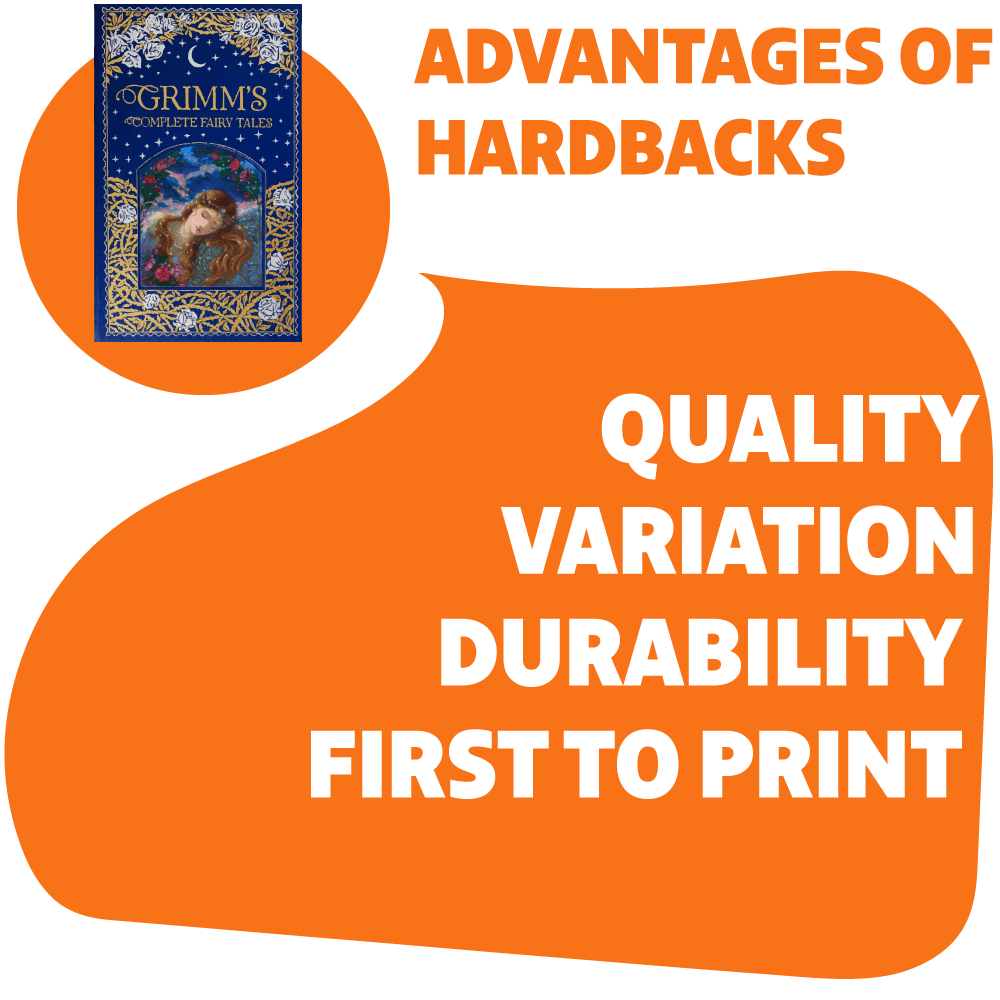
The disadvantages of hardbacks
Price
The biggest problem with hardback editions is the hefty price. Hardbacks are very expensive. Barnes and Noble leatherbound editions cost as high as $30. I once saw The Brontë Sisters s B&N’s leather-bound book cost $100.
So for all the advantages that you are getting, you are paying for them. And a lot, almost 10 times the price of paperbacks. So if you are a voracious consumer of books, buy hardbacks if you are very rich. And very strong.
Comfort
Even if you have enough money to buy hardback books to your heart’s content, there is one issue that will always be there with hardbacks; They are clunky and very difficult to read. And I am not just talking about large, thick hardcovers, but also the thin manageable ones. Here’s why.
The hardcover on the books requires you to keep the book on a table or something. You must be an android or Superman to hold and lift the book while you read. Hardcovers are not meant for that comfortable nook reading time, where you have a cup of hot chocolate on the table and reading your favorite book comfortably. Here I’ll say it:
Keep those beautifully illustrated and magnificently crafted hardcover books for display. Read the cheaply made yet light and flexible paperback.
An insane bibliophile
Fear
What fear? You may ask. Well, since the book is so beautiful and premium (also in the cost), every time you pick up that hardcover, you’ll act like you’re handling a highly reactive chemical. One small mistake and even a single crease on the fine, crispy paper will act like a dent in a car.
Trust me, I have 14 B&N leatherbound and all of them sit on the topmost shelf of the bookshelf, covered with plastic jackets and of course, untouched and unread. I actually got the paperback version of these books to read because of how cumbersome it was to read these books.
I hope this lengthy article (filled with anecdotes and personal advice) helped you determine what type of books you should go with. Is it really that important? No, go ahead buy any book you want to read, and read it however you want. But someone who reads a lot and loves the visceral feeling of physical books, hardcover vs paperback becomes a big deal. Now go on, read.

